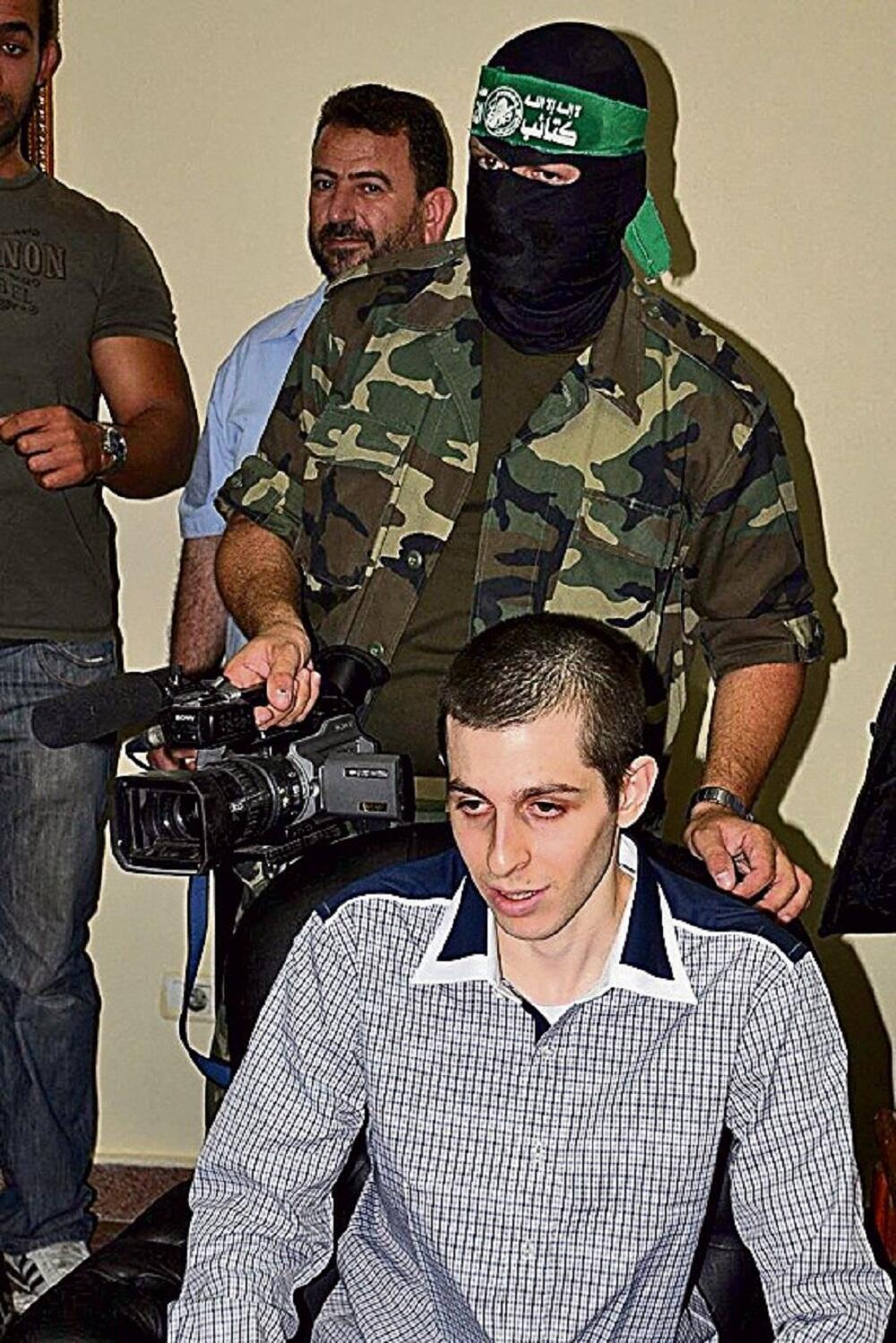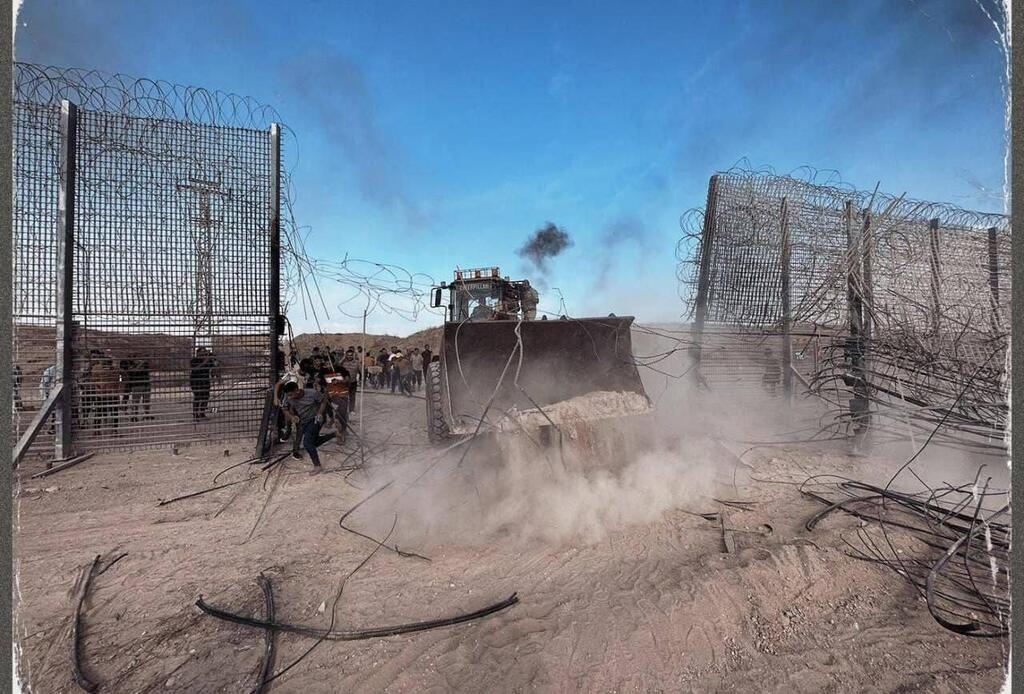Getting your Trinity Audio player ready...
The very fact that Israel and the U.S. are still conducting negotiations with Hamas for a hostage deal, more than ten months after the acts of mass murder committed by Hamas on October 7, shows that they have learned nothing from history.
Territorial withdrawals and hostage deals make terrorists stronger, not weaker, and they guarantee further terrorist attacks on an ever-larger scale. There is and there can be no substitute for the annihilation of Hamas, through relentless and overwhelming force.
A deal would mean collective suicide for Israel
Those Israeli leaders who are in favor of a cease-fire and prisoner exchange with Hamas are attempting to drive the entire country to commit collective suicide. They seek to continue a multi-decade policy, begun in 1983, which directly caused both the massacres of October 7, and Israel’s overarching strategic crisis. It is worth remembering the key moments of this policy, and their consequences.
In November 1983, Israel released a barely imaginable number of 4,765 terrorists in exchange for just six Israeli soldiers held by Fatah in Lebanon. In May 1985, less than two years later, three soldiers were exchanged for another 1,150 terrorists, in an event known as the Jibril deal. A month later, in June 1985, Israel withdrew to a misnamed "security zone" in southern Lebanon, abandoning most of its northern neighbor to the terrorists supported by Syria and Iran.
Entirely unsurprisingly, passive defense of a small area of southern Lebanon solved nothing, and the situation gradually deteriorated. On the night of September 4 to 5, 1997, Israel’s Shayetet 13 Navy special forces were ambushed by Hezbollah, with 12 Israeli soldiers killed, of whom the body of one, Itamar Elia, was left behind. In June 1998, Israel returned the body in exchange for 60 live terrorists and the remains of another 40.
No lessons were learned. On 24 May 2000, Israel permanently withdrew from the small strip of land in southern Lebanon. Hezbollah has been on Israel’s northern border ever since, for more than 24 years. Its attacks did not stop. Neither did the exchange deals.
On 7 October 2000, exactly 23 years before last year’s Hamas massacre, Hezbollah abducted three Israeli soldiers in a cross-border attack. They came back dead, in an appalling deal agreed upon in January 2004, in which Israel received their bodies and one live citizen, Elhanan Tennenbaum, in return for releasing 435 terrorists, including senior Hezbollah members Abdel Karim Obeid and Mustafa Dirani.
Businessman Tennenbaum later admitted that he had been giving advice on a drug deal when Hezbollah abducted him from Dubai in 2001. Israel had released 435 criminals, some of them extremely dangerous murderers, for three fallen soldiers and one living scoundrel. One can only imagine what level of contempt, rising to derision, this engendered among Israel’s enemies.
The pattern had been set, and Israel’s strategic collapse continued. On 6 June 2004, Prime Minister Ariel Sharon’s government, the same which had agreed to the vile Tennenbaum deal, announced the policy of "disengagement" from Gaza. This novel euphemism for unilateral withdrawal could not disguise the simple reality that on September 12, 2005, Israel abandoned Gaza. As always, in the case of every Israeli decision recounted here, there was no strategic plan at all to deal with the consequences.
It took 18 years and one month for the apocalyptic consequences of abandoning Gaza to become undeniable, but it took much less time for Hamas to stage an attack that would serve as the foundation for everything that would come.
On 25 June 2006, Hamas and Popular Resistance Committees’ terrorists used an attack tunnel to cross into Israel from Gaza, murder two soldiers and abduct another, Corporal Gilad Shalit. This was the moment when Israel should have annihilated the terrorist organizations in Gaza. Instead, Israel conducted a feeble operation codenamed “Summer Rains.”
This changed absolutely nothing. Hezbollah saw how impotent Israel had become, and this was the only cue it needed. Not quite three weeks later, on July 12, 2006, Hezbollah killed eight Israeli soldiers and abducted two more.
Within several months of Sharon’s disengagement, Israel had been rewarded first with the abduction of Shalit, and then with the abduction of Eldad Regev and Ehud Goldwasser, and the consequent Second Lebanon War. Every strategic problem that Israel faces in summer 2024 was already manifest 18 years earlier. What was equally manifest was Israel’s strategic bankruptcy.
During the 2006 war, Israel continued the policies that were already then leading from one disaster to another. A limited ground offensive into the war, conducted at the end of a month’s fighting and in a haphazard manner, is largely remembered for an infamous ambush of Israeli tanks in Wadi Saluki. Two days later, Prime Minister Ehud Olmert’s government stopped the offensive and ended the war. No improvement in Israel’s strategic position had been achieved, and it is not even known with certainty to this day whether Regev and Goldwasser were alive when they had been abducted.
Two years after the war, another inadmissible deal was agreed with Hezbollah. The bodies of the two abducted soldiers were exchanged for five live terrorists as well as 199 bodies of dead terrorists. Among the released terrorists was Samir Kuntar, who had been serving a 542-year sentence for vicious murders of members of the Haran family. It took Israel more than seven years and a great deal of effort to finally hunt down Kuntar on December 19, 2015. This is just one example of the practical consequences and costs of releasing terrorists.
On 1 July 2010, a certain Benjamin Netanyahu, at that time less than two years into his second term in office as prime minister, claimed to understand the problem. He noted that about half of those released in just the one Jibril deal of 1985 had returned to terrorism and murdered dozens of Israelis. He went on to note that in just six years, those released in the Tennenbaum deal of 2004 had already murdered 27 more Israelis. Then, of course, Netanyahu did the opposite of what his statement suggested should be done.
In October 2011, Israel released 1,027 terrorists in return for Gilad Shalit. The released terrorists included some 280 convicted murderers, responsible for the deaths of 599 Israelis. Two of the most prominent murderers, Yahya Sinwar and Rawhi Mushtaha, had both served 23 years in Israeli prison only to return to Gaza and to the leadership ranks of Hamas. Sinwar is now the overall leader of the terrorist organization. Mushtaha, who might or might not be still alive, is Sinwar’s closest confidant.
Decades of Israeli strategic insanity sowed the seeds of the crisis of 2024. Mass releases of terrorists created the current strength and depth of experience of Hamas and Hezbollah. Withdrawals from vitally important territory gave the terrorist organizations space to develop and grow.
A famous turn of words, coined not by Albert Einstein but by Rita Mae Brown, contends that ‘Insanity is doing the same thing over and over again and expecting different results.’ On that definition, yet another mass release of terrorists and yet another territorial withdrawal would certify Israel as insane.
It is time to stop substituting secondary goals for the primary one
It should be clear to anyone capable of the bare minimum of rational thought that Israel’s primary goal is to permanently break the pattern, to ensure that there will be no more abductions and no more exchange deals. Those who insist on yet another exchange are engaged in a deliberate act of misdirection, of substituting the subsidiary goal of saving the current hostages for the primary objective of making sure there will be no more hostages in the future. This must not be allowed to stand.
It is possible to state with absolute clarity the primary reason for the Hamas attacks of October 7, without the need for any kind of inquiry, or for a salaried committee of judges interviewing a thousand witnesses. Sinwar and his henchmen emerged from Israeli prisons equipped with an absolute contempt for Israeli weakness and strategic incompetence, and equipped also with a certainty that it is possible to do anything, absolutely anything, to the Jews.
Decades of releases of the worst conceivable murderers, combined with a series of Israeli territorial withdrawals, made this a natural conclusion. Any further deal will make this attitude as solid as granite, and guarantee worse massacres in the future.
The shadow of America’s terrible path
It must be explicitly acknowledged that the fault for the tragedies of the past is not merely Israel’s. The United States has traveled on a catastrophic path for three decades. In February 1991, the U.S. obliterated Iraqi tyrant Saddam Hussein’s military, only to declare a cease-fire and leave him in power. America has not won a war, any war, ever since.
Now, it is several months into what I had called a "non-war" with the Houthis. Instead of obliterating the Houthis, who have no organized military, the U.S. is passing the time issuing more sanctions, which will never make a decisive difference. America speaks in grandiose terms of a "free and open Indo-Pacific" and the Houthis have listened. They had already conducted 116 attacks on shipping by the end of July, without any serious consequences.
Right now, America is busy choosing either Kamala Harris or Donald Trump for president. Of the two, Harris finished the 2020 Democratic primaries without a single delegate, while even Amy Klobuchar got five. This time, Harris has obtained 4,567 delegates in that most democratic of procedures, a virtual roll call with no alternative candidate for delegates to vote for.
Unlike Harris, Trump has won competitive primaries in both 2016 and 2024, but he did not manage to win even 47 % of the popular vote in either of the two presidential elections in which he has so far stood. As a comparison, George W. Bush won 48.4 % of the popular vote in his hair’s breadth electoral victory of 2000. If there was a prize for the least electable American, Harris and Trump would have to share it.
The ever-more deranged nature of America’s foreign policy and domestic politics is dragging the U.S. to destruction, and the U.S. is now attempting to drag Israel down along with it. With 80 days to go until the election, nobody in the Biden-Harris administration is thinking of anything other than securing Harris’ election, by all and any means that appear to be available.
It is time for Israel to simply say no, and to annihilate Hamas. If it does not, it will not last even five years longer. Too many mistakes, too many concessions, too many cowardly non-decisions have been made over the decades. There is no more space for insanity.
- Dan Zamansky is a British-Israeli independent historian and author of The New World Crisis, a Substack analyzing the problems of today








